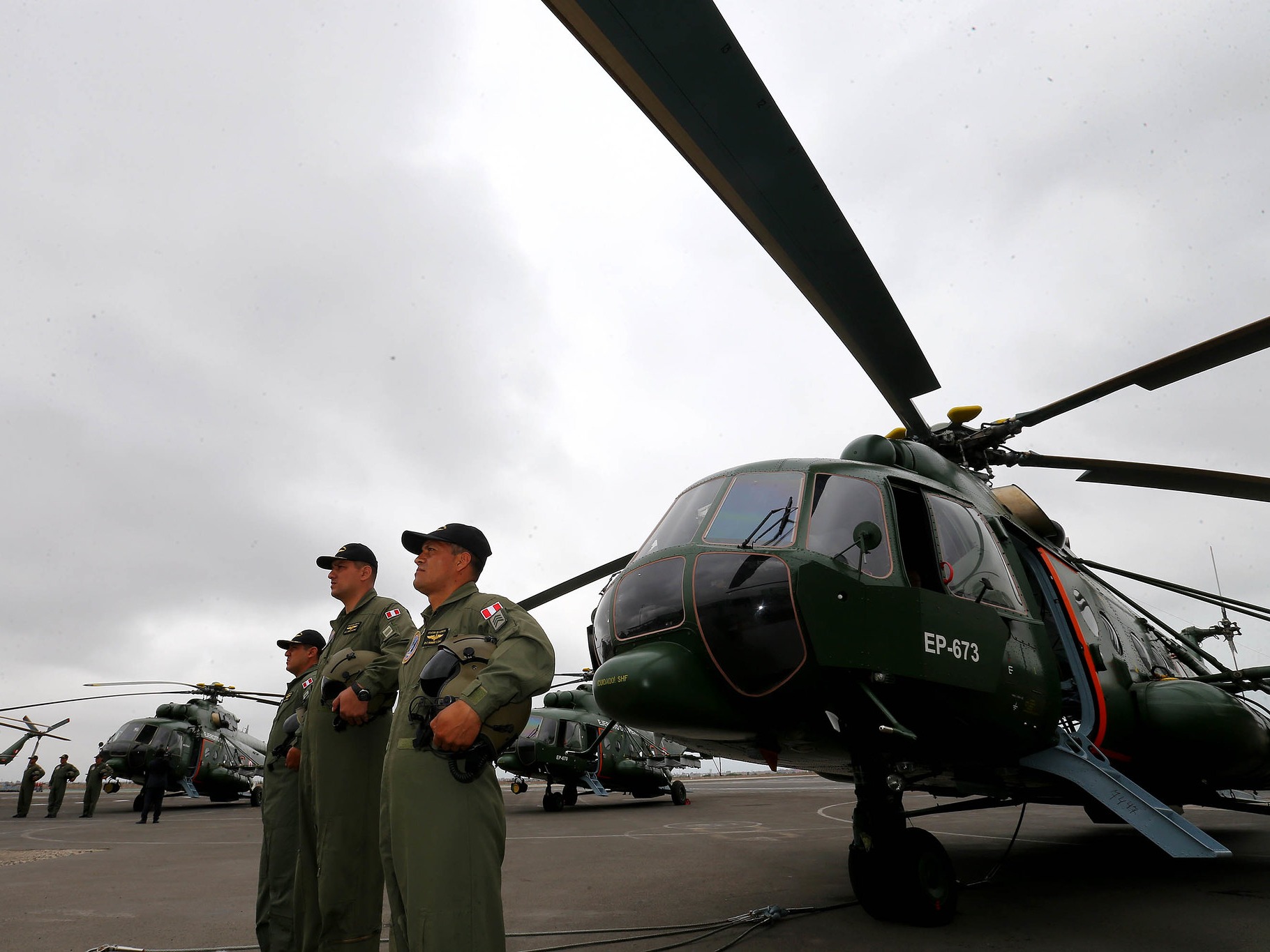Peru's Defense Ministry demands answers over delays in Russian helicopter repairs
Peru’s Defense Ministry presses Army over three grounded Russian helicopters after months of delays. Milenium Veladi Corp. has yet to deliver the aircraft, despite six deadline extensions and 70% of the contract already paid.
The Ministry of Defense (Mindef) of Peru has formally requested detailed explanations from the Army’s General Command regarding the significant delay in the delivery of three Russian-made helicopters undergoing major repairs (“overhaul”) by Milenium Veladi Corp. Although the original deadline expired in August 2024 and six extensions were granted, the Mi-171-ShP, Mi-171-Sh, and Mi-8MTV-1 helicopters remain non-operational.
Deputy Minister of Defense Resources Adolfo Herrera Orlandini sent a letter to the Army’s commander general, Division General César Briceño Valdivia, demanding a comprehensive report on the current status of the US$20.3 million contract (approximately S/79.2 million). Sources indicate that the aircraft are at the Army's Aeronautical Maintenance Center (CEMAE) in Cocachacra, Arequipa, without engines or other critical components, which were reportedly sent to facilities in the Russian Federation for inspection.
Mindef’s concern is heightened by the fact that the Army has already paid 70% of the total contract value as an advance to Milenium Veladi Corp. The deputy minister’s request, delivered through Brigadier General César Briolo Scamarone, secretary of the Army’s General Command, urges General Briceño to detail the reasons behind the contractor’s failure to meet the terms and the steps the Army has taken or plans to take. The deadline for submitting the report is June 6, 2025.
This request follows a previous alert from Brigadier General Paul Vera Delzo, Director General of Defense Resources, who raised concerns about the irregular status of the helicopters, which were contracted under emergency conditions and without a public tender.

Contract history and penalties
On May 9, General Briceño informed Mindef that a US$2 million penalty had been imposed on Milenium Veladi Corp. for non-compliance. He also noted that the Army rejected a further extension request and has initiated a conciliation process with the company. However, these measures have not satisfied the Defense Ministry, as the helicopters remain unrepaired.
In a prior memo, General Vera Delzo requested details on “the timeline of events related to the contract’s execution: status of dispute resolution, delivery of parts from Russia, penalty collection status, and actions taken and planned.” Mindef is seeking clarity on the Army’s next steps in light of what it views as a failed contract.
Key facts about the case
- Which aircraft are involved? Three helicopters: a Mi-171-ShP, a Mi-171-Sh, and a Mi-8MTV-1, all part of the Peruvian Army fleet.
- Who is responsible for the repairs? Russian company Milenium Veladi Corp., contracted directly under emergency provisions.
- What is the contract value and how much was paid? US$20.3 million, with 70% already disbursed.
- When were the helicopters due for delivery? The original deadline was August 13, 2024.
- What is the contractor’s justification for delays? Milenium Veladi Corp. cites the Russia-Ukraine conflict as the main obstacle.
Implications and prior audit findings
According to La República, the situation is further complicated by an audit issued on December 10, 2024, by the Ministry’s Institutional Oversight Office, which identified ten Army personnel as responsible for the decision to contract Milenium Veladi Corp. Among those named are the current head of the Joint Command of the Armed Forces (CCFFAA), Division General David Ojeda Parra, and the Army commander general, César Briceño Valdivia.
As a result, the Office of the Comptroller General of the Republic has asked the Special Anti-Corruption Prosecutor’s Office to initiate criminal proceedings against those implicated. At the end of 2024, the Army ordered the retirement of CEMAE’s former chief, Brigadier General Aldo Domínguez Peralta, due to his connection with the irregularities.
Milenium Veladi Corp. was incorporated in Panama by Russian interests, allegedly as a front for the National Aeronautical Services Company (NASC), in a bid to circumvent sanctions imposed by the U.S. and EU following Russia’s invasion of Ukraine.
Russia’s defense industry is currently struggling to supply components and offer maintenance services globally, due to these sanctions—directly affecting operators of Russian military hardware, such as the Peruvian Armed Forces. The country has historically maintained a sizable fleet of Russian-made rotary-wing aircraft, vital for transport, logistics, and missions in remote areas.
Mindef now awaits the Army’s report to determine the next steps in this complex contractual and operational scenario.

/https://aviacionlinecdn.eleco.com.ar/media/2025/06/helicopteros_rusos_ejercito_peru_1.jpeg)
Para comentar, debés estar registradoPor favor, iniciá sesión